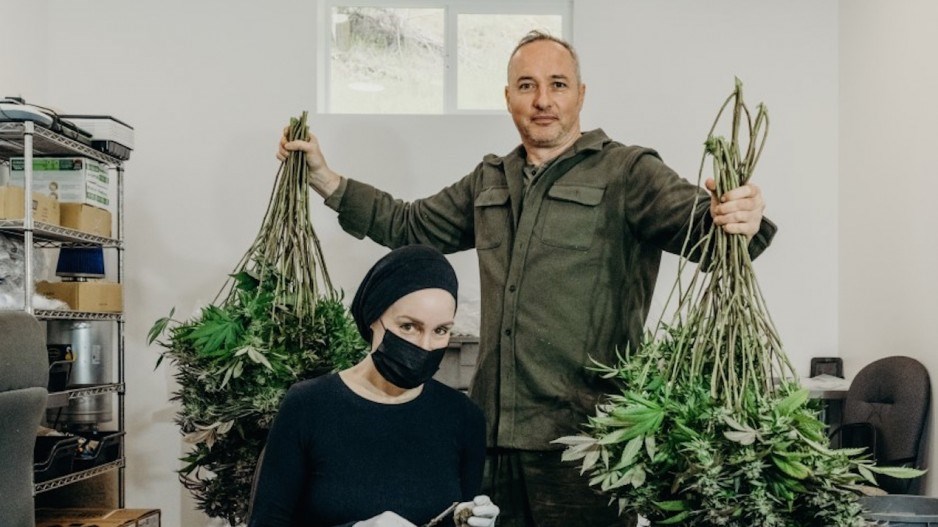B.C. cannabis producers are mulling the pros and cons of applying and getting licences to sell cannabis at stores connected with their production facilities.
While getting licences would help the companies better establish their brands and build stronger bonds with customers, the extra fees, labour and operational costs may make the ventures unviable, they say.
The B.C. government on Oct. 4 announced that starting Nov. 30, its Liquor and Cannabis Regulation Branch will start accepting farm-gate retail applications.
Applicants need to ante up a $7,500 non-refundable fee just to have bureaucrats assess their paperwork. If approved, they then need to pay a $1,500 first-year licensing fee, as well as ongoing annual $1,500 renewal fees.
"Tantalus is considering its options, but does not have a fully formed opinion as to whether or not a farm-gate store will materially enhance our business prospects going forward," Tantalus Labs CEO Dan Sutton told BIV.
Others are waiting for more clarity from government on exactly how the program will be run.
"We're still looking at how those regulations are going to be applied," Pure Sunfarms vice-president of communications Julia Cameron told BIV.
"Right now, [government has] delivered a high-level outline of how that program is intended to function, but they are going to have the full package on Nov. 30."
She said that her company is first and foremost a cultivator and that any retail operation would be peripheral to that primary business.
Salt Spring Island-based Magi Cannabis principal Josh Beckett told BIV that he is interested in the program but is unlikely to apply on Nov. 30.
"It is something that I'll keep in mind," he said.
"I'm struggling right now just to stay afloat and make things work. It's been a tough year for small producers in the province and you're probably aware that it's been a pretty tough year for a lot of people in the sector."
He said that while having a retail store would help him build a better connection with customers, he was weighing whether the time, money and effort to create the store would be worthwhile.
"It's not just putting up a stand at the end of your road with a couple of jars of weed and 'help yourself' sign," he said.
While B.C.'s 74 cannabis micro-producers and about 140 other federally licensed cannabis producers have to wait until the end of November to be eligible to apply for a farm-gate retail licence, one such cannabis retail store already exists.
The Williams Lake First Nation operates the cultivator and retailer Sugar Cane Cannabis, with its farm-gate store legal thanks to a government-to-government agreement between the B.C. government and the Williams Lake First Nation.
Cannabis production facility tourism has obstacles
After Canada legalized cannabis in October 2018, some imagined a future where production sites could become tourist attractions, much like wineries, where visitors could see production techniques and then end tours at on-site stores.
Allowing the public to enter cannabis facilities is legal in B.C., as long as the producer's staff confirm individuals' identity and ensure that they are at least 19 years old, Cameron said.
Producers are reluctant to hold tours, however, primarily because they fear that visitors would bring in contaminants or bacteria that would potentially harm crops.
"Unlike the wine industry, we do not and cannot use pesticides, so our integrated pest management strategies are quite a bit different," said Beckett.
"It's a very tricky thing to do. What you could do, and you'd need money and resources to do this, but maybe you could put together a show garden that people could go through, and then buy things at the gift shop. Your real garden wouldn't be there."
It could be viable to have small groups of people take tours while wearing hair nets and protective gear, including coverings for shoes. They may also be required to step into a disinfectant solution before entering the facility.
Cameron said that she would not rule out something like this happening at Pure Sunfarms at some point in the future but that these tours are not currently being considered.




